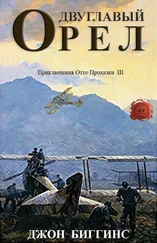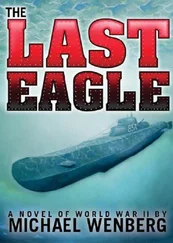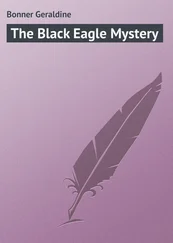“I see. But why should I come over to you? If I don’t your friend Eichler might shoot me and tip me overboard like Fregattenleutnant Strnadl; but if that doesn’t happen the worst I can expect is a spell in an Italian prison camp.”
“Because you’re a Czech like us, that’s why, you and your pilot.”
“I’m sorry; I may have been born a Czech but I became an officer of the House of Austria a long time ago now and gave up my nationality.” “Well, perhaps it’s high time you considered applying to rejoin. Austria’s dead, Prohaska: had been dead for years, even before the war. Now the Old Man’s gone the corpse has finally fallen to pieces.”
“I beg to differ: Austria-Hungary is probably going to win this war.” “Austria won’t win this war, whatever happens. Austria can’t win. But Germany might, and what’s going to happen to us all then?” He leant across the table and stared into my face. “For God’s sake, Prohaska, wake up will you? They say that you’re an intelligent man. This whole precious Austria-Hungary of yours is nothing more now than a way of forcing us Slavs to fight for Germany. What sort of future do you think there’ll be for any of us if they win? Come over and join us, you and your pilot. When we get to Italy we’ll all volunteer to join this Czech Legion of theirs.”
“You seem to know a lot about these things for a petty officer telegraphist, Vackar.”
“I’ve made it my business to know. We wireless operators talk to one another a lot, despite the war. I’ve been in touch with Masaryk and the National Council through Switzerland for a year or more now. There’s a lot of us organising in the fleet and the garrisons, just waiting for the day. It hasn’t come yet, but when it does then believe me there’ll be a lot of us Czechs ready to do what needs to be done.”
“All very impressive. So why all the trouble aboard this ship?”
“The Croats and the Slovenes. We could still get them on our side, but for the moment they’re more frightened of the Italians than of Germany. And anyway, they’re half of them long-service men: heads of solid wood. If an officer told them to jump over a cliff for their Emperor they’d do it.”
I must admit that what Vackar had to say to me in the fo’c’sle there that morning did disturb me a good deal; brought a number of uncomfortable half-formed ideas to the surface about the direction the war was taking.
But please understand that if the pull of my old nationality and language was strong, the bonds of loyalty to Dynasty and Fatherland were still much stronger. Things looked different in those days from how they look now, seventy years on. All of us officers—even first-generation officers like myself from the old peasant peoples—had been subjected to years of very subtle and effective mind-shaping as we went through the schools and military colleges of the Old Monarchy. Loyalty to our Emperor; loyalty to our ruling house; loyalty to our multinational Fatherland and to our ship and service; loyalty to the officer’s code of honour and to our oath; loyalty to the Catholic Church and to our country’s allies: all these were extremely powerful ties. And just because we had been indoctrinated to accept these things does not necessarily mean that they were themselves worthless: in fact, looking back on it now, I think that even if the Habsburg multinational empire was a pretty disastrous affair in practice, not all of its ideals were ignoble ones.
But any inner struggle that I might perhaps have undergone was rapidly forestalled by a shout from the other side of the door. Vackar sprang to his feet and rushed out on deck, leaving a very young Croat sailor with a pistol to guard me. Before long shouting and confused sounds of struggle came to me from amidships as the boat began to lose way. Something was happening in the engine room. I set to work upon my guard, who was clearly very perplexed by it all.
“Sailor,” I said in Croat, “do you hear that?”
“Obediently report that yes, Herr Schiffsleutnant.”
“What will you do now? ”
His voice trembled as he replied. “Obediently report . . . Obediently report that I’ll . . . shoot you dead if you move—by your leave, Herr Schiffsleutnant.”
“Shoot me, sailor? Oh dear, you shouldn’t have said that you know: offering threats to an officer is a death-penalty offence in wartime. ‘Tod durch erschiessen . . .’ Is that how you want your parents to remember you?” The poor lad was almost in tears by now. I held out my hand. “There, there. You’re a young lad and no doubt they threatened you into joining them. Give me that pistol and we’ll say no more about it.” He handed me the pistol almost thankfully and I rushed up the ladder on to the deck abaft the conning tower.
A strange scene greeted me in the gathering dusk. A naked man, covered from head to foot in grime and rust, stood at the conning-tower rails with a pistol in his hand and a naval cap on his head. He was haranguing a crowd of open-mouthed, staring ratings below, like some crazed prophet just arrived in Jerusalem from the wilderness to tell everyone to repent and escape the wrath to come. It was only with difficulty that I recognised this bizarre, staring-eyed figure as Franz Nechledil.
“Sailors,” he yelled, “sailors, don’t listen to these fools and deceivers who would lead you to the enemy, who would entice you to destruction and sell your country to the perfidious King of Italy. Czechs, Slovenes, Germans, Croats—we all fight for one another, for our Emperor and King and for our common Fatherland; for God and for our honour as sailors of Austria. Will you let these reptiles make you into traitors and mutineers? No future awaits you in Italy but a prison camp, a prison camp which will take in the whole of the Adriatic coastlands and all your families as well if the Italians win. Be true to your oath; true to your comrades; true to the Noble House of Habsburg!” Out of the corner of my eye I saw a movement behind the after funnel. It was Eichler, levelling a rifle at Nechledil on the bridge and about to fire. But I fired first. Hitting someone with a pistol at twenty metres is by no means certain, but my luck was in. He dropped the rifle and fell to his knees, clutching his arm. That was the hair that tipped the scales: within a few minutes the waverers had joined us and the mutineers were firmly under lock and key in the fo’c’sle with sentries posted at every door and skylight. S.M. Tb14 had rejoined the Imperial and Royal Fleet.
The full story only came out later: how Nechledil had almost fainted in the foul air of the bilges, but had still managed to turn that tight corner and worm his way up into the base of the oilskin locker at the foot of the companionway ladder. The plate that made up the locker floor had given him some trouble, but luck and the slipshod workmanship of Messrs Ganz and Danubius had been on our side: instead of a steel plate the floor of the locker was nothing but plywood. He had managed to prise it open, climb up into the locker—then burst out upon an astonished sentry at the foot of the ladder. The man had given no trouble when Nechledil appeared, naked and black as the devil with rust and bilge-grime: in fact had run for his life yelling that the murdered officer had come back aboard to haunt everyone. This unexpected turn had so thrown the engine-room crew off balance that they had barricaded themselves in and drawn the boiler fires. Nechledil had unlocked the door of the Captain’s cabin and the prisoners had then rushed out armed with legs from the cabin table. Things had hung in the balance for a few minutes, but in the end it was undoubtedly the awesome spectacle of Nechledil’s naked speech of Kaisertreu devotion from the bridge that had finally swung the crew against the mutineers. Just before dusk we fell in with the destroyer S.M.S. Sne%nik and were escorted back to Zara, all of us under arrest pending investigations.
Читать дальше












